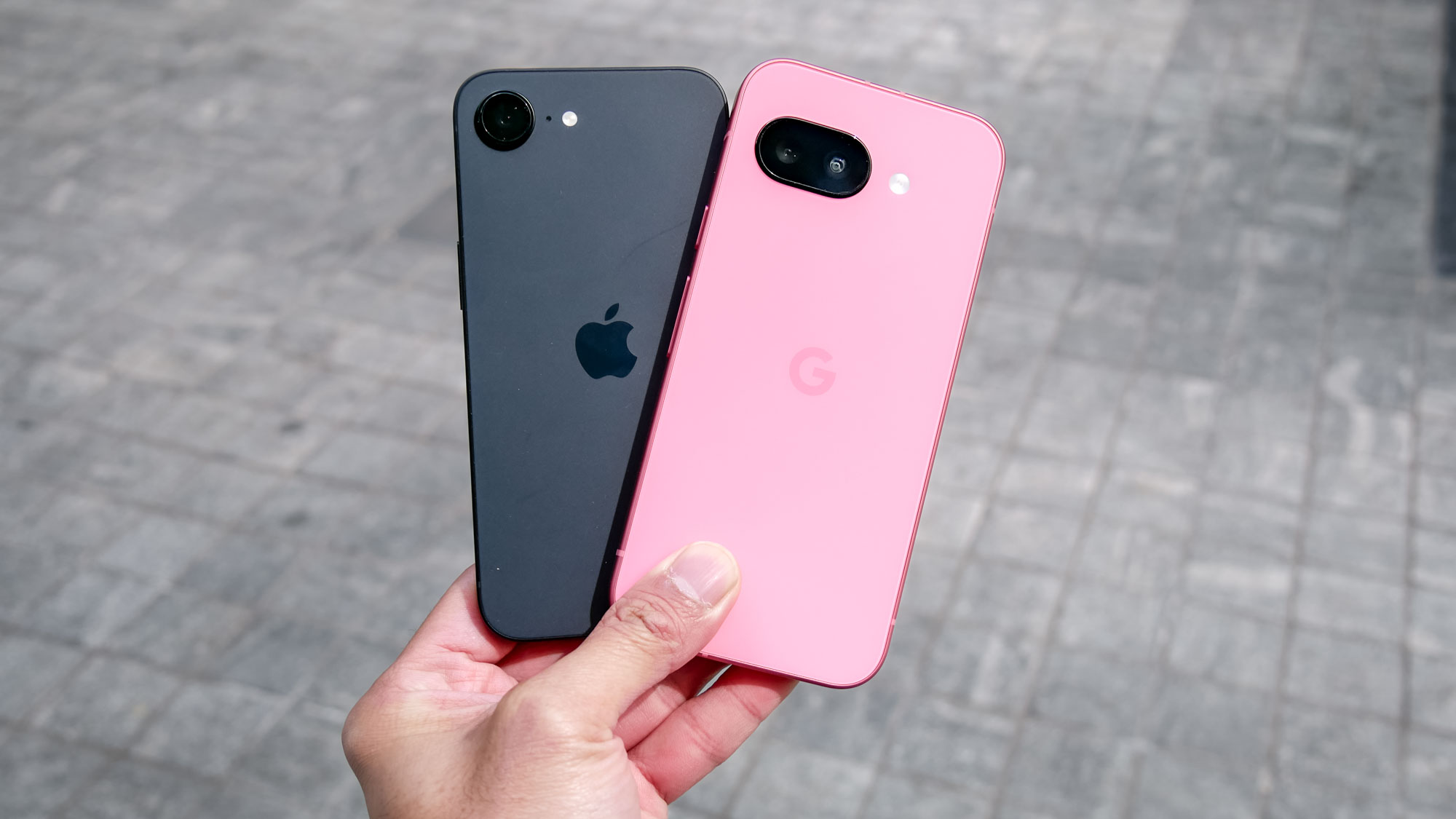Hitting snooze can damage our sleep — here's how a sunrise alarm clock can help
A simulated sunrise can be the key to resisting the snooze button
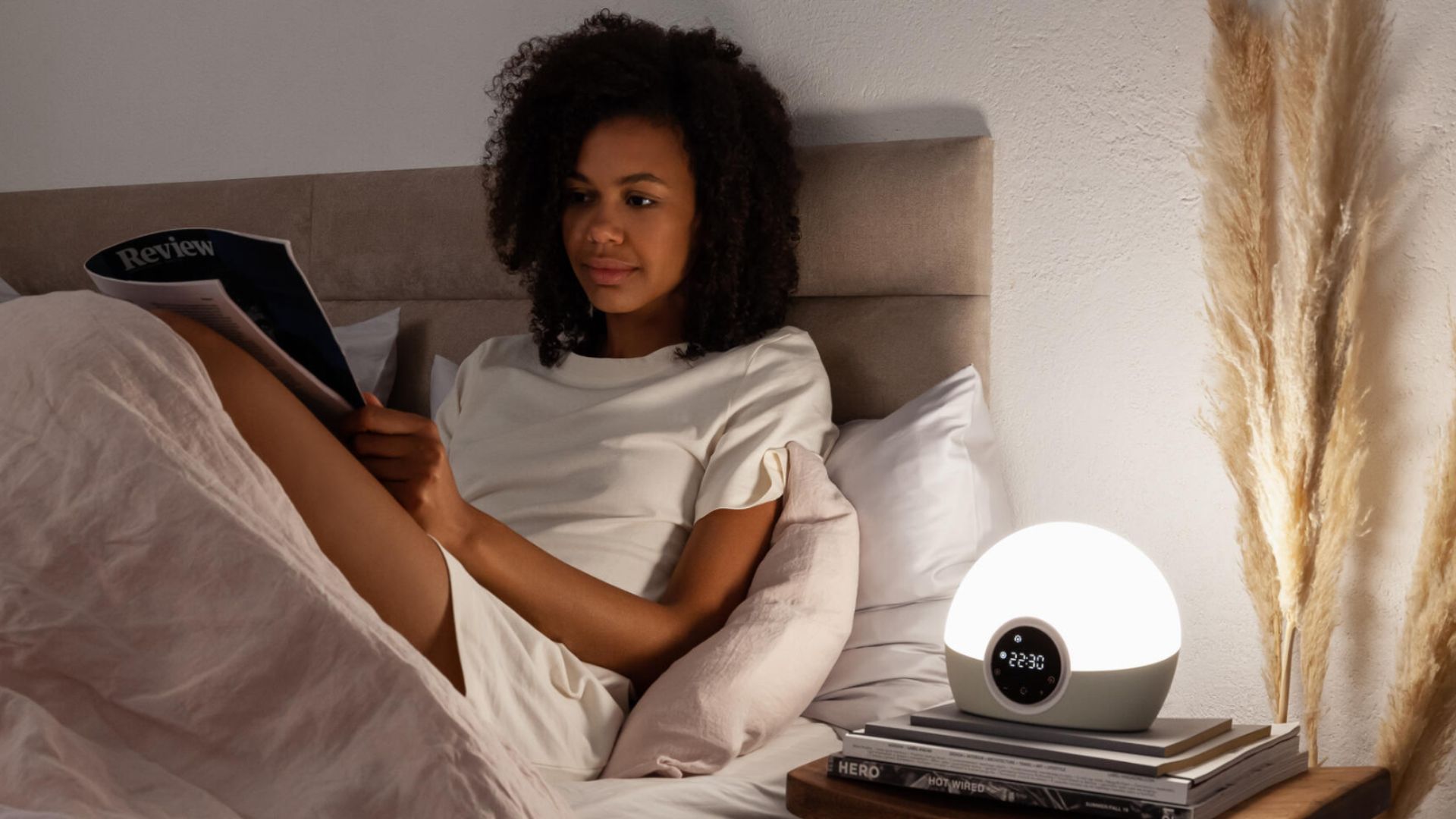
At Tom's Guide, we've praised the benefits of sunrise alarm clocks many times. Now we're adding another string to their bow as new research highlights how hitting snooze in the morning can leave you feeling more tired during the day and sleeping worse at night.
While sleeping one of the best mattresses of the year is the best way to get quality sleep and wake up refreshed, sleep tech products can offer a helping hand. And stopping the snooze for good is where sunrise alarm clocks can really shine.
Ultimately, resisting the snooze button comes from discipline, but there's no shame in getting a helping hand. Here's how this year's best sunrise alarm clocks can make your mornings easier and benefit your sleep in the long run.
Why is hitting snooze bad news?
New research from Amerisleep shows hitting the snooze button regularly can disrupt your body's internal clock, leading to sleep problems and low energy levels.
This is because, providing you go to sleep at a decent time the night before, by the time your alarm goes off your body's internal clock is ready to wake up. But when you hit snooze and go back to sleep, be it for a few minutes or more, you confuse your circadian rhythm. This means your body isn't as well attuned to when it's time to wake up and when it's time to sleep.
Professor Stuart Peirson from the University of Oxford explains: “If we have an irregular sleep and wake time, this makes hitting this optimal sleep window more difficult. Moreover, we sleep badly and wake up tired, meaning our circadian clock cannot keep us awake sufficiently the next day.”
Repeatedly hitting snooze leads to a cycle of getting poor quality sleep and feeling sluggish. Repetitive poor sleep can lead to heightened stress, lowered immunity and increased inflammation.
Sign up to get the BEST of Tom's Guide direct to your inbox.
Get instant access to breaking news, the hottest reviews, great deals and helpful tips.
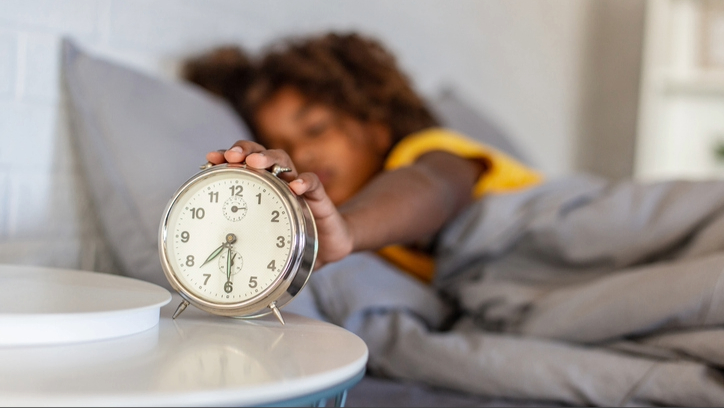
What is a sunrise alarm clock?
A sunrise alarm clock is a digital alarm clock that wakes you up with light rather than sound (though many have audio alarms too). They gradually get brighter over a certain timeframe in the morning, simulating a natural sunrise inside your bedroom.
Many sunrise alarm clocks have sunset features, built-in FM radio and sleep meditations too. Lumie, Hatch and Philips are the leading brands in the sunrise alarm clock market offering top-range models. There are also more budget options at Amazon where you'll find more affordable brands like JALL and hOmeLabs.
How a sunrise alarm clock can stop you from hitting snooze
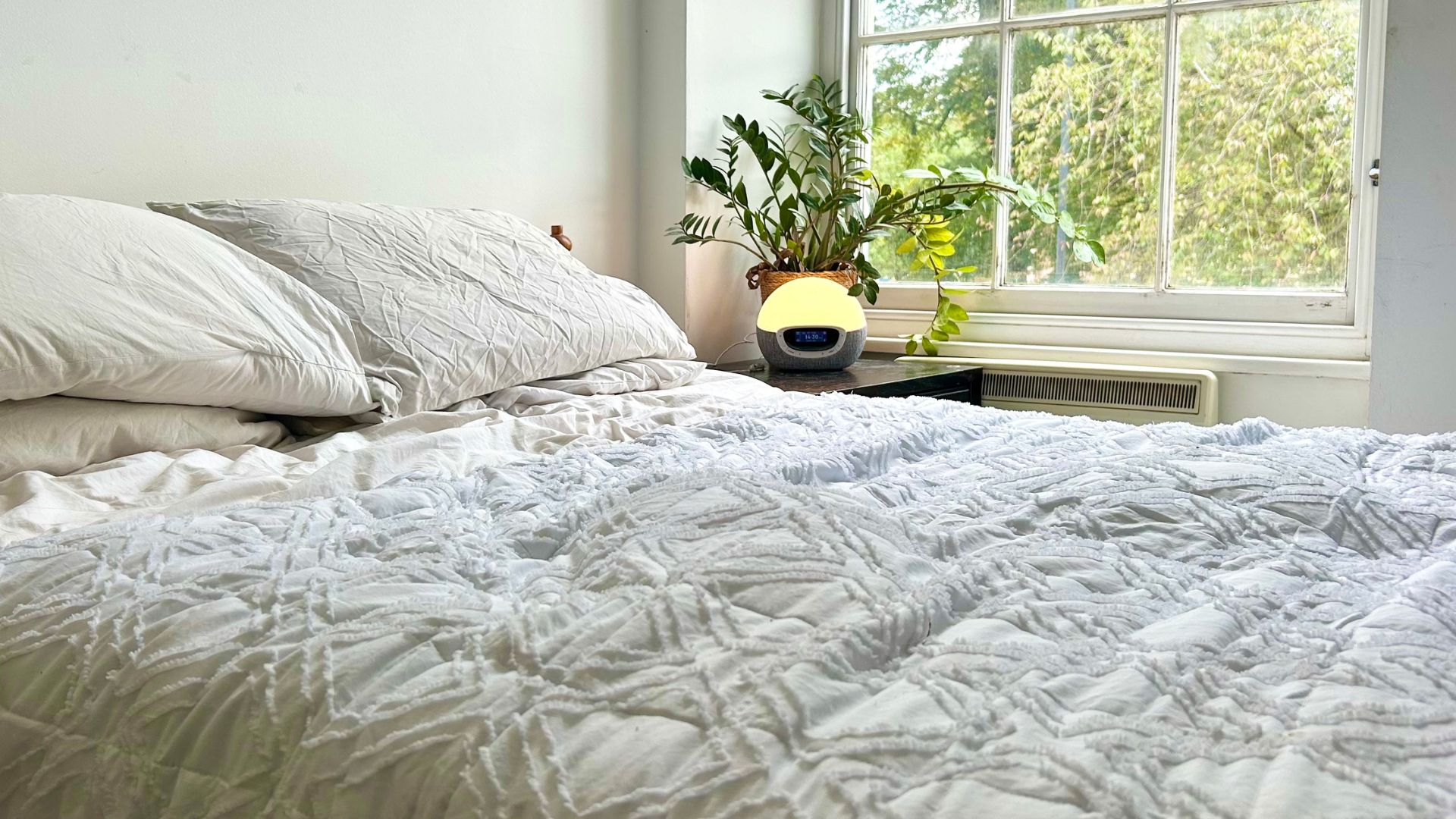
1. Helps you wake up naturally
Lighting up your bedroom gradually, usually over the course of 30 minutes, sunrise alarm clocks gently stir you from sleep rather than jarring you with a blaring sound.
The light signals to your body that it is time to start waking up. Therefore, your body will suppress melatonin (the sleepy hormone) production and release cortisol, which brings alertness. This gentle, gradual wake up call helps you move from sleep to wakefulness in a more natural way, where you reach the end of your sleep cycle rather than interrupt it. You are less likely to wake up feeling groggy. Our reviewer for the Lumie Bodyclock Shine 300 sunrise alarm clock review reported how mornings, especially in the winter, felt a lot easier a gradual sunrise.
Sleep inertia is the term used to describe morning grogginess where you feel disorientated and impaired upon waking up. By reducing sleep inertia, a sunrise alarm clock makes you less likely to want to fall back asleep, aka less likely to hit the snooze button.
2. Helps you establish a healthy sleep routine
With both sunset and sunrise simulation features, a quality sunrise alarm clock can help you elevate not only your morning wake ups but your nighttime routine too. A healthy wind down routine is the bedrock to good sleep, allowing you to drift off peacefully to get the best quality and quantity of sleep possible.
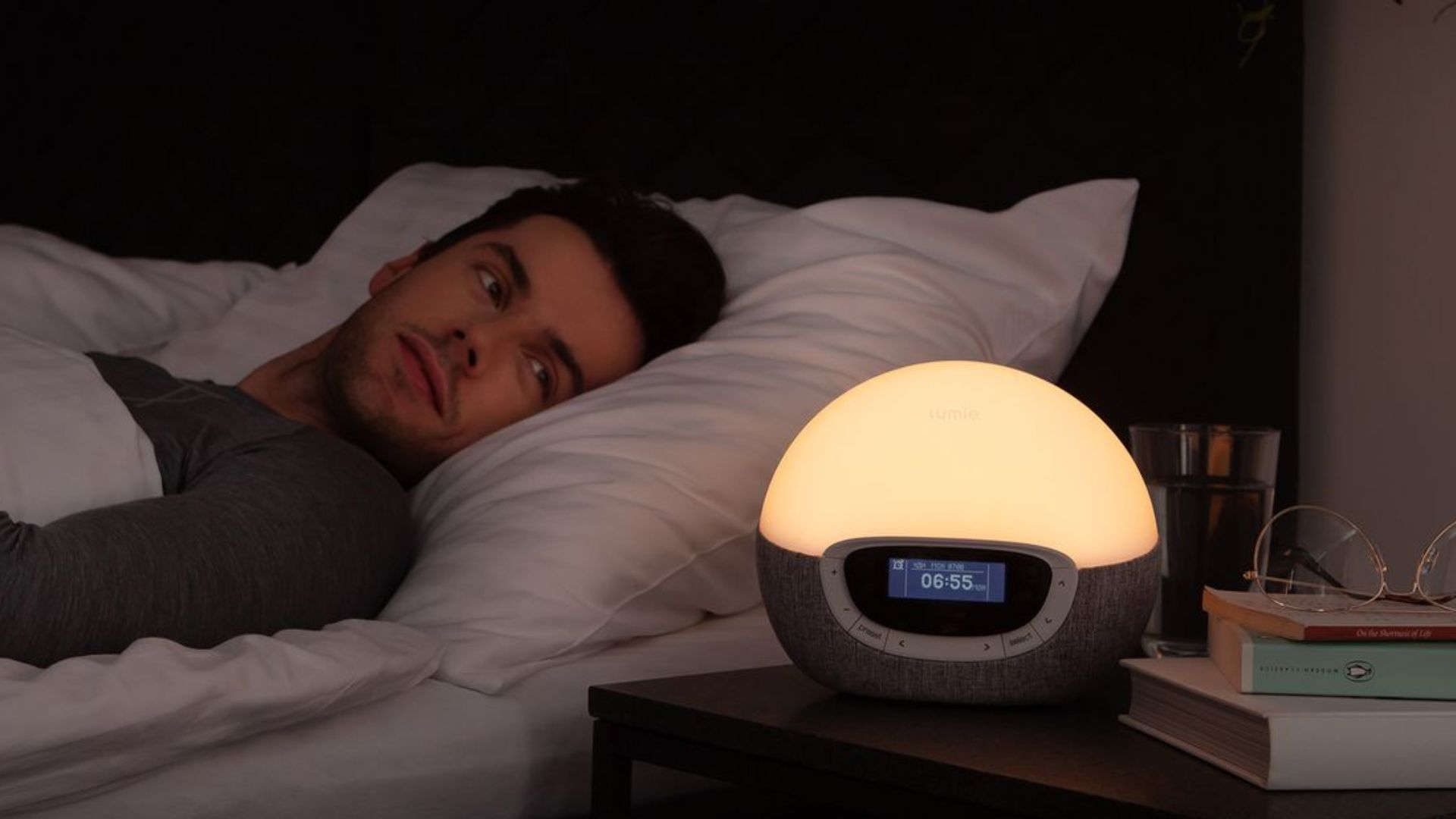
If you fall asleep at a decent hour and sleep deeply through the night, you are more likely to wake up feeling refreshed, making the snooze button less tempting.
Sunrise alarm clocks often feature sleep meditation and breath work audio to help you relax. The Hatch Restore 2 even has a bedtime story option where you can have historical stories read to you as you drift off. Read our full Hatch Restore 2 review to see its full features.
3. Regulates your circadian rhythm
The Amerisleep research found more than one in three adults press snooze three times before getting up in the morning. This shows how out of sync people's sleep and wake cycles are, as they don't feel ready to wake up when they need to.
Exposing yourself to light in the morning regulates your body's internal clock by suppressing sleep hormones and increasing alertness. While this needs to be natural daylight or light from a SAD lamp, a sunrise alarm clock can still be effective in helping you jump out of bed and get out into the great outdoors. This not only helps you wake up easier but also fall asleep faster, contributing to a more regular, efficient sleep routine and circadian rhythm.
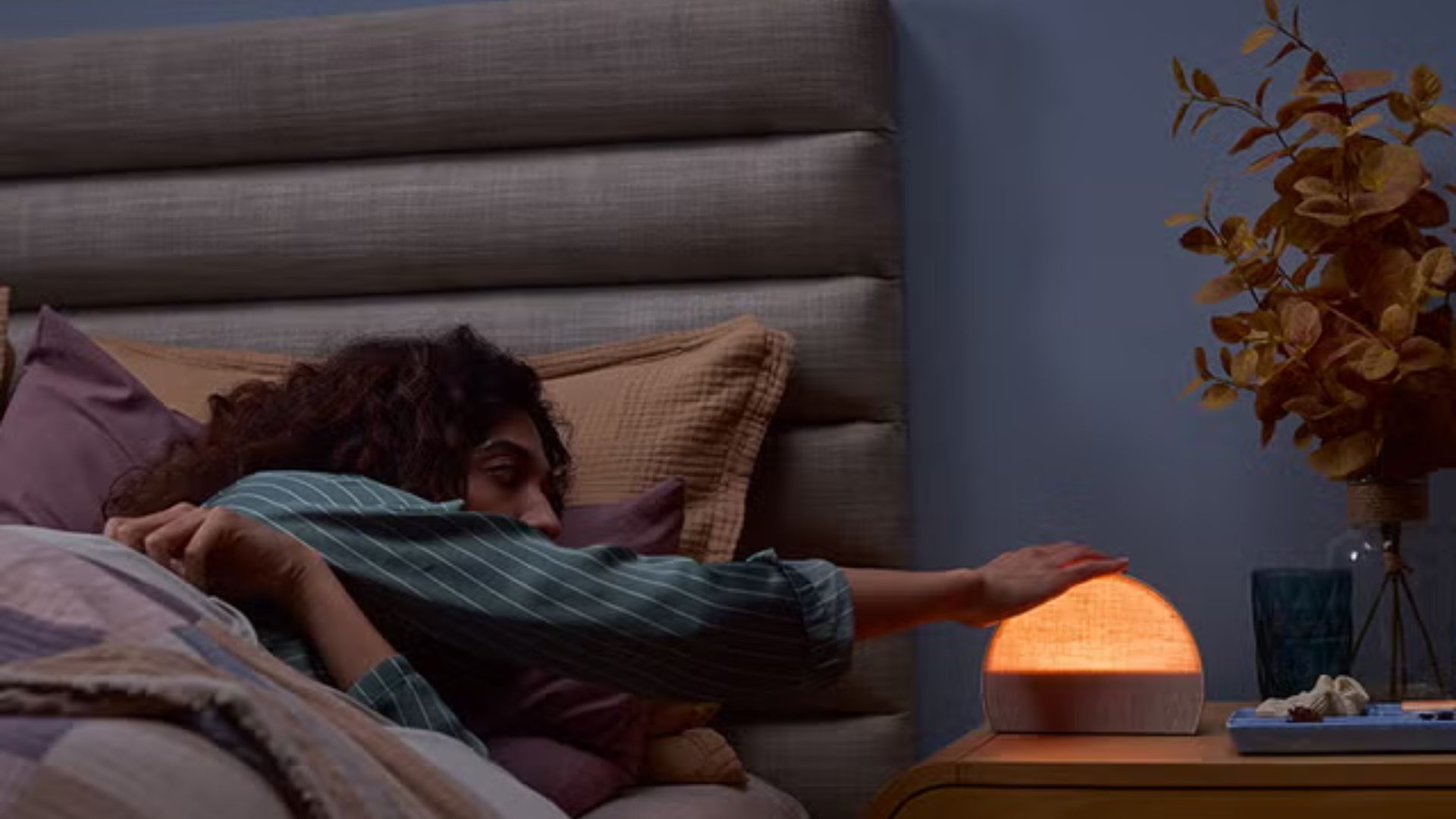
What are the other benefits of a sunrise alarm clock?
The benefits don't end there. Other benefits of a sunrise alarm clock include improved mood and energy levels on dark mornings. Sending a wake-up signal to your brain, morning light gives you energy when you need it, which is usually early in the morning when you need to get to work. With your energy peaking earlier in the day, by the time bedtime comes you can usually wind down and fall asleep easier.
They are also multi-functional and can be used as radios and night lights. You can set the wind down timer and the light will dim over a set time, giving you time to read in bed without having to get up to turn the light off.

Eve is a PPA-accredited journalist with an MA in Magazine Journalism from Cardiff University. She is a Sleep Staff Writer at Tom’s Guide and has four years’ experience writing health features and news. She is particularly interested in the relationship between good sleep and overall health. At Tom’s Guide Eve is responsible for coverage and reviews of sleep tech and is our smart and cooling mattress specialist, focussing on brands such as Eight Sleep and Sleep Number. She also covers general mattress reviews, seeks out the best deals to produce tried-and-tested buyer's guides for sleep accessories and enjoys writing in-depth features about sleep health. She has been involved in rigorous testing procedures for mattress reviews in our Sleep Studio and has interviewed experts including sleep doctors and psychologists. When not covering sleep at Tom's Guide, Eve enjoys writing about health and fitness, food and culture.
